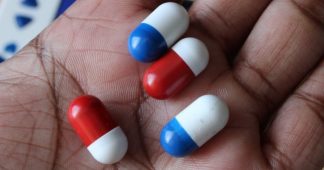Japan investigations allege misconduct in large-scale clinical studies
by Posted on behalf of Ichiko Murai.
The credibility of Japan’s clinical-research system has come under fire as investigations report manipulation of data and conflict of interest involving the pharmaceutical company Novartis. Six published papers have been retracted, but Novartis has denied any wrongdoing. The country’s health ministry has now started its own investigation and is expected to release its findings at the end of September.
In question are five large-scale, post-marketing clinical studies on valsartan, a popular hypertension drug made by the company, which is based in Basel, Switzerland. The studies were launched by the Kyoto Prefectural University of Medicine, the Jikei University School of Medicine in Tokyo, Chiba University, the Shiga University of Medical Science in Otsu and Nagoya University, respectively, between 2001 and 2004. After a few years of follow-up research, they published papers suggesting other benefits of the drug — such as the prevention of other cardiovascular events — in addition to lowering blood pressure.
But after the Kyoto and Jikei studies were published, some researchers began to raise concerns. In the end, the institutions involved in all five studies ordered their own investigations, and the first one to issue a report was Kyoto, on 11 July (see document (in Japanese)), concerning the Kyoto Heart Study. That study had concluded that of 3,000 patients, the 1,500 treated with valsartan didn’t have significantly lower blood pressure than did those administered conventional treatments, but their risks of suffering from stroke and angina were halved.
The report states that “it is suspected data was manipulated in the process of producing final data for analysis” and that “an employee of Novartis Pharma [the Japanese arm of Novartis] who concurrently held a position as a part-time lecturer at Osaka City University was apparently involved in the statistical analysis”.
The employee’s affiliation with Novartis was not noted on any of the Kyoto study’s published papers. Six out of the seven papers were retracted, including the study’s main finding, published in 2009 in the European Heart Journal. Hiroaki Matsubara, who led the study but was not the person employed by Novartis, resigned from his position as professor at Kyoto Prefectural University in February.
The investigations launched by the four other universities are still ongoing, although the one at Jikei has issued an interim report on 30 July. The investigating committee there examined the Jikei Heart Study (see report (in Japanese)). That study had drawn similar conclusions to the Kyoto one in a Lancet paper in 2007, showing that in 3,081 patients recruited between 2002 and 2004, the effects on blood pressure were similar both with valsartan and with conventional treatments, but that in the patients who received valsartan the incidence of stroke, angina and heart failure were lower.
But the interim report found that 12.8% of data on systolic blood pressure reported in the final analysis were inconsistent with original clinical records held by the university, due to intentional manipulation. It also noted that the same Novartis employee handled the statistical analysis, but he denied his involvement. Meanwhile, a number of doctors who had taken part in the study, including its lead author, Seibu Mochizuki, said that the Novartis employee had been in charge of data analysis and that they had played no role in it.
Mochizuki, currently a visiting professor at Jikei, took full responsibility for the alleged improprieties — although it was unclear whether he meant to include the alleged data tampering — and has requested the retraction of the Lancet paper, says Makoto Takahashi of Jikei’s public relations office. As the study went on, Mochizuki became aware of the employee’s affiliation with Novartis, Takahashi says, but “at that time, the recognition of conflict of interest was not so strong as it is now”. He also pointed to Mochizuki’s lax attitude for not having checked the final draft of the paper. The university will decide what, if any, action to take against Mochizuki after a final report is published.
Novartis Pharma also issued a report from an investigation by outside experts (see report in (Japanese)) on 29 July. In the report, the company confirms that the employee, who left the company in May, had varying degrees of involvement in all five studies in varying degrees, including research design, research administration, statistical analysis and writing the research papers. But its investigation didn’t find any evidence that he had manipulated data. The employee believed that it was acceptable to participate in the studies because of his academic affiliation, while the authors of the papers didn’t disclose the fact that he was affiliated with Novartis. Novartis also confirmed these five studies were supported by Novartis’ donation programme, and that another employee who has also since left the company was involved in one of the studies.
On the same day, Yoshiyasu Ninomiya, president of Novartis Pharma, issued an apology for causing the problem and using the results of these clinical studies for sales promotion activities. The company and universities have pledged to strengthening their guidelines to prevent similar scandals from occurring in the future.
Health Minister Norihisa Tamura set up a committee on 9 August under his direct supervision to establish what can be learned from the scandals to ensure credibility of clinical studies. Concerning what corrective measures to take, the ministry will wait until more information is disclosed, including investigation results from the remaining three universities, says Masato Honma, deputy director of the ministry’s research and development division. “At the moment, information is still insufficient,” Honma says. “Fraud is indisputable, but who is responsible is unclear.”
Published at http://blogs.nature.com/news/2013/08/japan-investigations-allege-misconduct-in-large-scale-clinical-studies.html











